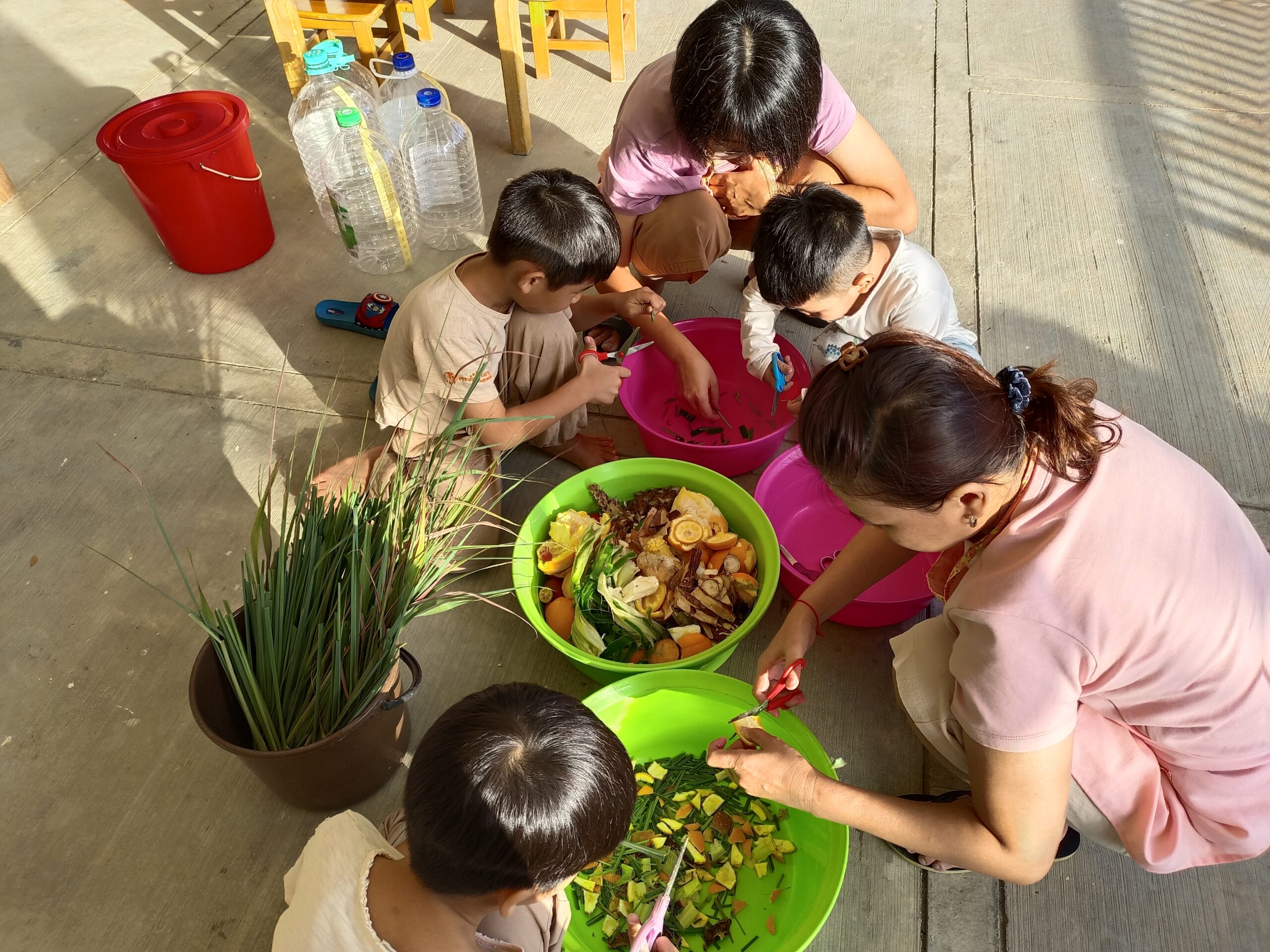Home » Composting: Creating a Connection to Food
Creating a Connection to Food
We often hear about the array of benefits that composting offers, ranging from fostering a sustainable planet and reducing waste to enhancing organic food production and beyond.
Yet many are skeptical to start as spaces in urban cities might be limited and pest control might be a problem.
Amid the verdant and flourishing environment of our kindergarten, and setting a precedent, www.morningstars.com.my involves young children in initiating a composting endeavor with the purpose of overseeing their productive farm.
Read more about the ways this initiative contributes to the well-being of both the edible farm and the children involved.
What is Composting? It is the natural process of decomposing organic materials, such as food scraps and yard waste, into nutrient-rich soil via the interactive action of microorganisms, resulting in a sustainable and eco-friendly way to recycle and enrich the soil. At www.morningstars.com.my,a Waldorf-based education playschool, our teachers actively involve the children in getting their hands dirty with composting. Below are 5 advantages of fun with composting that children will learn.

#1. Hands-On Learning: Composting provides an excellent opportunity for children to engage in hands-on learning about the natural world. They can observe and participate in the decomposition process, learn about the role of microorganisms, and understand the importance of recycling organic materials such as food and fruit scraps.
#2. Environmental Awareness: Composting teaches kids about waste reduction and the importance of sustainable practices. They can learn how their actions can positively impact the environment by reducing landfill waste and greenhouse gas emissions.
#3. Connection to Food: At www.morningstars.com.my, we provide organic and biodynamic meals. We observe our children brimming with excitement as they witness the emergence of mini watermelons and the sprouting of string beans. They are able to directly understand the benefits of composting, which provides a tangible link to food production. Our young ones can visibly grasp the concept of how soil enriched with compost leads to the growth of robust plants and more flavourful fruits and vegetables. This experience nurtures genuine gratitude for the origins of their food
#4Problem-Solving Skills: Together as a Team, Teachers lead children to engage in composting, during this period they learn to troubleshoot and problem-solve. They explore ways to balance the compost mix via succinct instructions and explanations, manage odors as composts is covered by another layer of freshly cut grass , and create the optimal conditions for decomposition.
#5. Responsibility and Teamwork: Composting can be a shared responsibility, encouraging children to work together and take ownership of the process. This fosters teamwork, responsibility, and a sense of accomplishment.
Therefore, incorporating composting into edible farms and involving children in the process can create a holistic learning experience that benefits both the environment and the younger generation’s understanding of sustainability and food systems. Reach out to www.morningstars.com.my to learn more on their edible farm project!